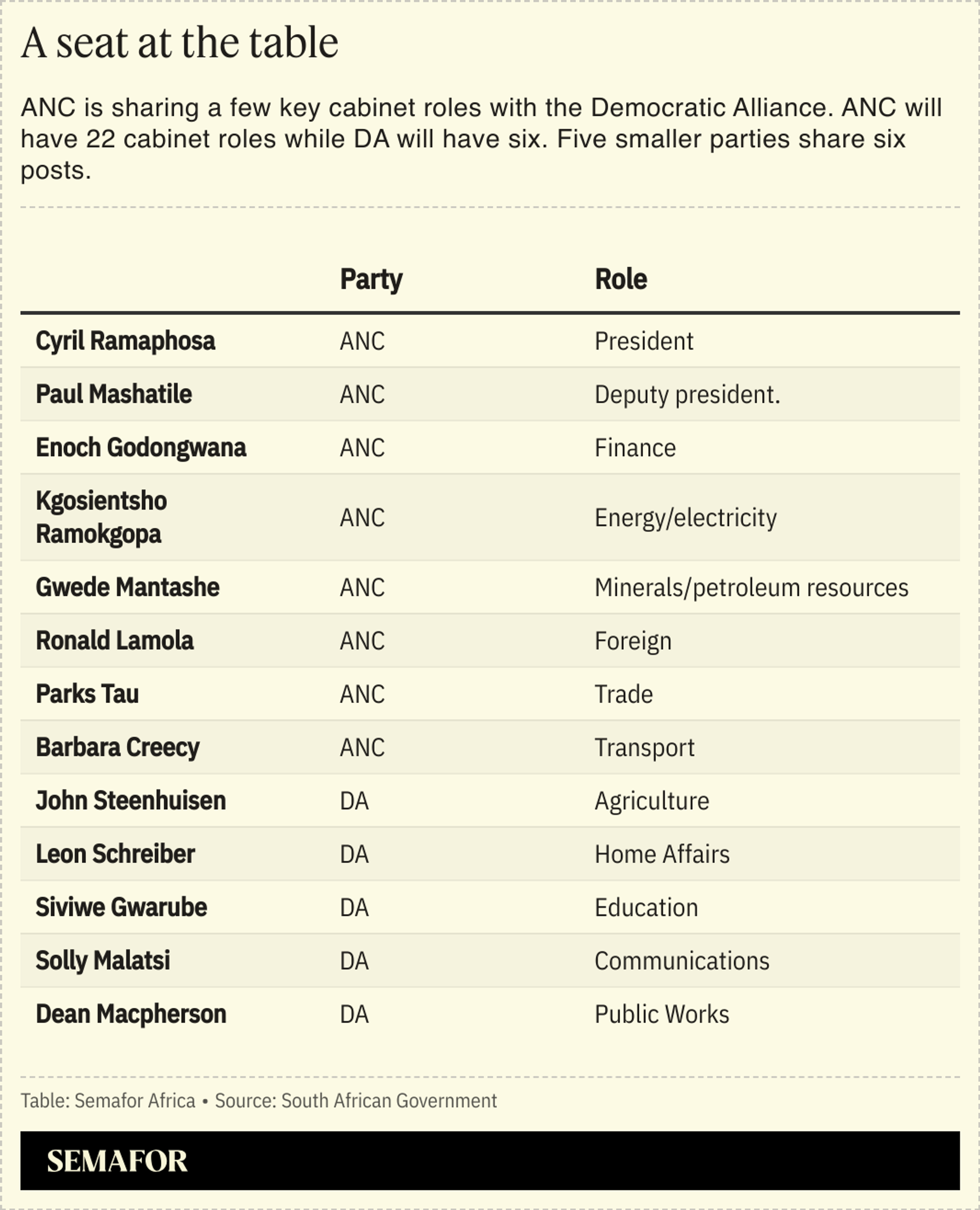The News
JOHANNESBURG — South Africa’s President Cyril Ramaphosa finally appointed a cabinet of ministers late on Sunday local time. The new cabinet, which will lead the country’s first national coalition government, includes six members from the Democratic Alliance, previously the official opposition.
Ramaphosa kept key ministries, including finance and defense, for his African National Congress. It will see the return of the country’s Finance Minister Enoch Godongwana to the all-important post, given the country’s difficult economy. John Steenhuisen, leader of the DA, will be the new agriculture minister.
Ramaphosa said: “All parties have made a commitment to respect the constitution and to promote accountable and transparent governance, evidence-based policy and decision-making, the professionalization of public service, integrity and good governance.”
In this article:
Know More

The ANC was forced to form a coalition government after failing to secure a simple majority in South Africa’s election on May 29. The center-right DA won the second largest share of the vote in the election and the two parties, traditionally rivals, agreed to form a coalition with smaller parties. That enabled ANC leader Ramaphosa to become the leader of Africa’s biggest economy for five more years.
It took two weeks for the ANC to negotiate a deal with the DA, to establish what they call a government of national unity, which includes nine other parties.
Top party members of the ANC and the DA had spent the last two weeks in tense negotiations trying to to agree on the right share of ministerial posts. At one point the talks fell apart over claims the DA wanted a number of ministers equivalent to its share of the vote which would have entitled the party up to 11 posts. At one point Steenhuisen was reported to have been aiming for the deputy president role.
The jury is out on whether Ramaphosa’s team will cohere and manage to deal wtih South Africa’s intractable problems of increasing poverty and inequality. South Africa’s unemployment stands at 32.9% if those who have given up looking for work are not counted, according to the country’s national statistics agency.
Room for Disagreement
The South African Democratic Teachers Union, an ally of the ANC, has criticized the coalition’s composition, particularly the fact that the education portfolio was assigned to the DA.
“We have never been on good terms with the DA — they are anti-trade union and always place the blame for education problems at the door of the trade unions,” said Nomusa Cembi, spokeswoman of the 265,000-member body which is South Africa’s largest teachers union.
